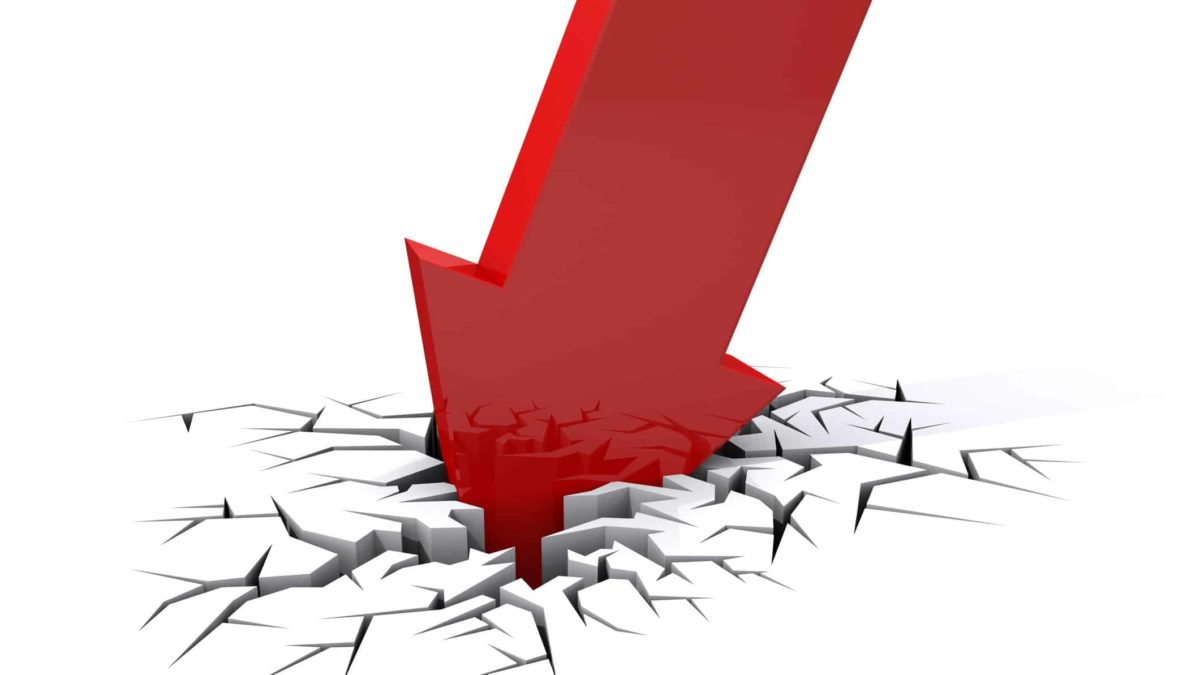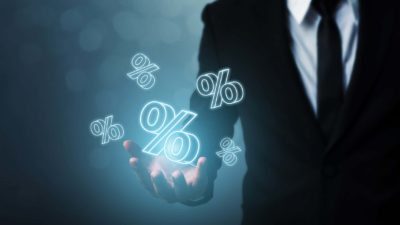The S&P/ASX 200 Index (ASX: XJO) is 0.72% lower today and back under 7,000 points for the first time in over a month. It's the third consecutive day of losses for the index – each one above 0.7%.
Today's market fall comes after the United States Bureau of Labor Statistics announced the consumer price index (CPI) for the country increased by 0.9% for the month of April – the largest rise in the measurement since 2009. Over the past 12 months, it jumped 4.2%; 160 basis points more than the 12 months up to March.
Both the Nasdaq Composite (INDEXNASDAQ: .IXIC) and the S&P 500 Index (INDEXSP: .INX) fell heavily – 2.7% and 2.1% respectively – after the figures were announced. The ASX followed the trend today when trading resumed at 10am.
ASX 200 falls as US inflation rises
Motley Fool Australia's own chief investment officer, Scott Phillips, said that the performance of American stock and Australian shares usually correlated.
"I think it's common for the ASX to follow US markets, almost slavishly," he said. "The old saying is 'when America sneezes, Australia catches a cold'."
Mr Phillips agreed that inflation numbers out of the US were likely to have impacted today's ASX 200 performance. "Yes, either directly or indirectly, it did affect the ASX. Directly, fears of inflation here are heightened [by the CPI results]."
Meanwhile, the tech slide continues
Tech shares have also had a rough day on the trading floor today. Afterpay Ltd (ASX: APT) finished the day 5.6% lower ($84.35), Xero Limited (ASX: XRO) collapsed by 13.7% ($116.47), while Nuix Ltd (ASX: NXL) shares equalled their 52-week low during morning trade before recovering to only be down 0.88% ($3.39). It should be noted Xero also released its full-year results up to 31 March 2021 today.
High growth shares (like those in the tech sector) and bond yields are usually inversely correlated. Bond yields, most of the time, go up when investors expect inflation to increase. According to Reuters, today's US CPI results were "bigger than expected".
Mr Phillips said today's slide in tech shares may not have so much to do with the inflation numbers themselves, but rather reflected an ongoing downward pattern with tech shares at present.
"It's more likely a continuation of a trend to sell off any growth stocks rather than anything new," he said.
Is inflation really on the up?
While investors, both on the ASX 200 and in the US, are worried about rising inflation on the back of falling unemployment and government stimulus, policymakers do not appear to agree.
The Reserve Bank of Australia chair, Dr Phillip Lowe, said at the last meeting of the RBA board he did not expect interest rates to go up until 2024 at the earliest. The main reason he cited was because of low inflation.
[The RBA] will not increase the cash rate until actual inflation is sustainably within the 2 to 3 per cent target range.
For this to occur, the labour market will need to be tight enough to generate wages growth that is materially higher than it is currently. This is unlikely to be until 2024 at the earliest.
The last annual CPI result in Australia was a much lower 1.1% when compared to the US.
According to Reuters, US Federal Reserve chair Jerome Powell and economists agree that today's result is a blip due to a confluence of factors resulting from the coronavirus pandemic coming to an end.
"This is not a sign of an inflation problem," economist Robert Barbera was quoted as saying.
"…we simply need time to get things back online [and ease supply bottlenecks]."








